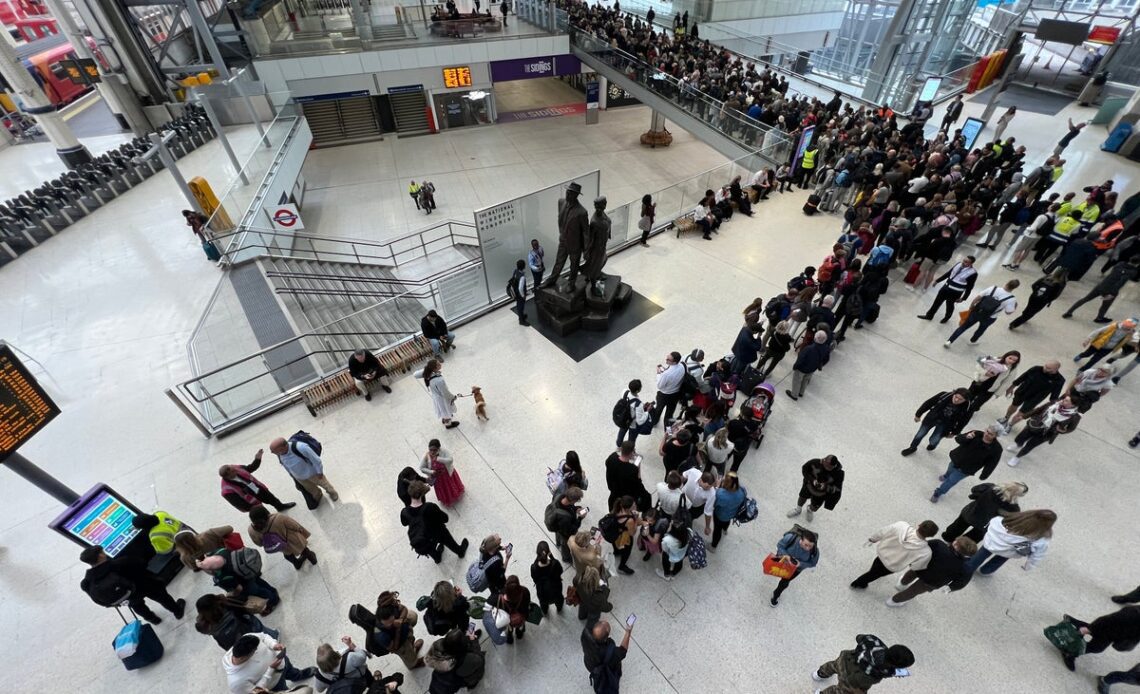As more rail strikes get under way in Great Britain, the government has announced that from next year “minimum service levels” will be imposed to avoid a compete shutdown of transport links.
Ministers will introduced a bill in Parliament as early as this week to ensure a certain number of trains, Tubes or buses continue to run even during industrial action. But will it work – and, if so, how?
Where are we with rail strikes?
We have just had the first weekend in October without a national rail strike, but various regional disputes are happening. East Midlands Railway passengers have seen widespread route cuts due to two days of strikes by members of the Unite union.
Next weekend it’s the turn of train managers at Avanti West Coast, with a repeat on Sunday 6 November – both of them in a dispute involving RMT unions over the imposition of rosters.
On 29 October, ScotRail staff who are members of the RMT will walk out for 24 hours.
What is the government planning?
The Department for Transport intends to introduce Minimum Service Levels legislation in Parliament shortly.
It will ensure transport services – including rail, tubes and buses – cannot be completely shut down when unions impose strikes.
A government source says: “It is wrong that strikes are preventing hard-working people and families up and down the country from getting to work, doctors’ appointments and school.”
The rule is likely to be that 20 or 40 per cent of trains must run.
Haven’t we been promised this before?
Yes. The 2019 Conservative manifesto promised: “We will require that a minimum service operates during transport strikes.
“Rail workers deserve a fair deal, but it is not fair to let the trade unions undermine the livelihoods of others.”
It appears that almost three years since that election, and after months of national rail strikes, the idea is now back on the table.
How will it work?
The model being used is expected to be similar that used in Spain – where employment and industrial relations laws are very different. For example, as Epsu, the European Public Service Union, explains: “The Ministry of Employment may, in appropriate circumstances, order the strikers to resume work for up to two months.
“Exceptionally, in the event of possible harm to the national economy, the government may end a strike by imposing compulsory arbitration.”
In terms of minimum service levels, Epsu says: “When a strike is held in essential public services, a minimum level of…
Click Here to Read the Full Original Article at The Independent Travel…
